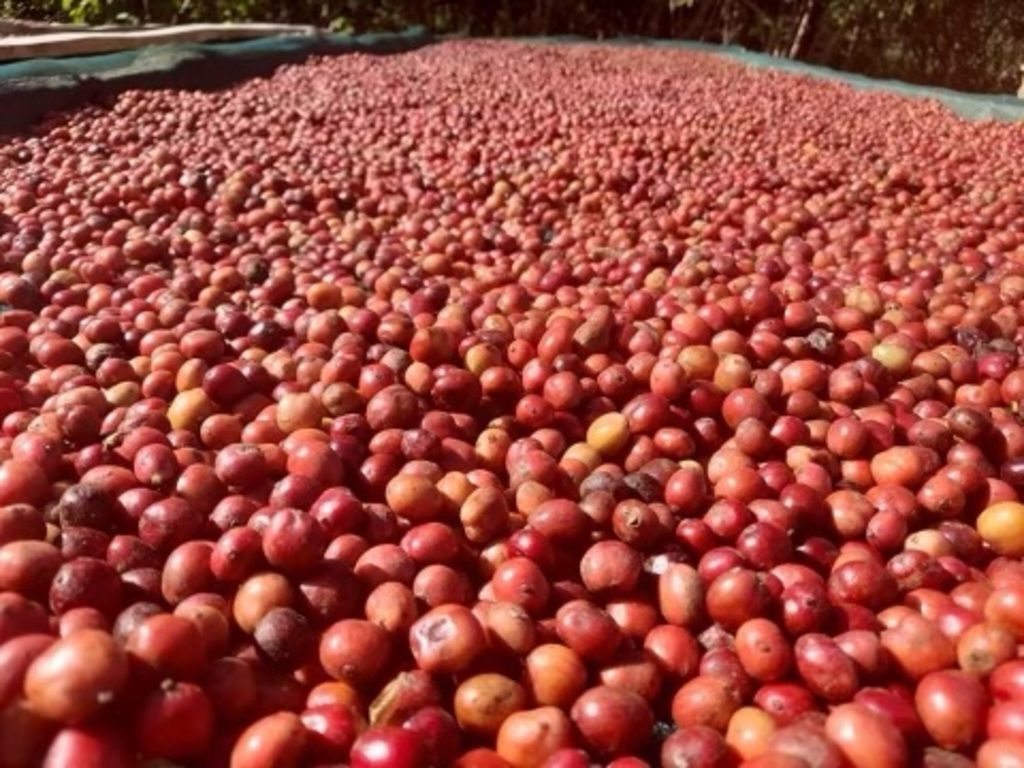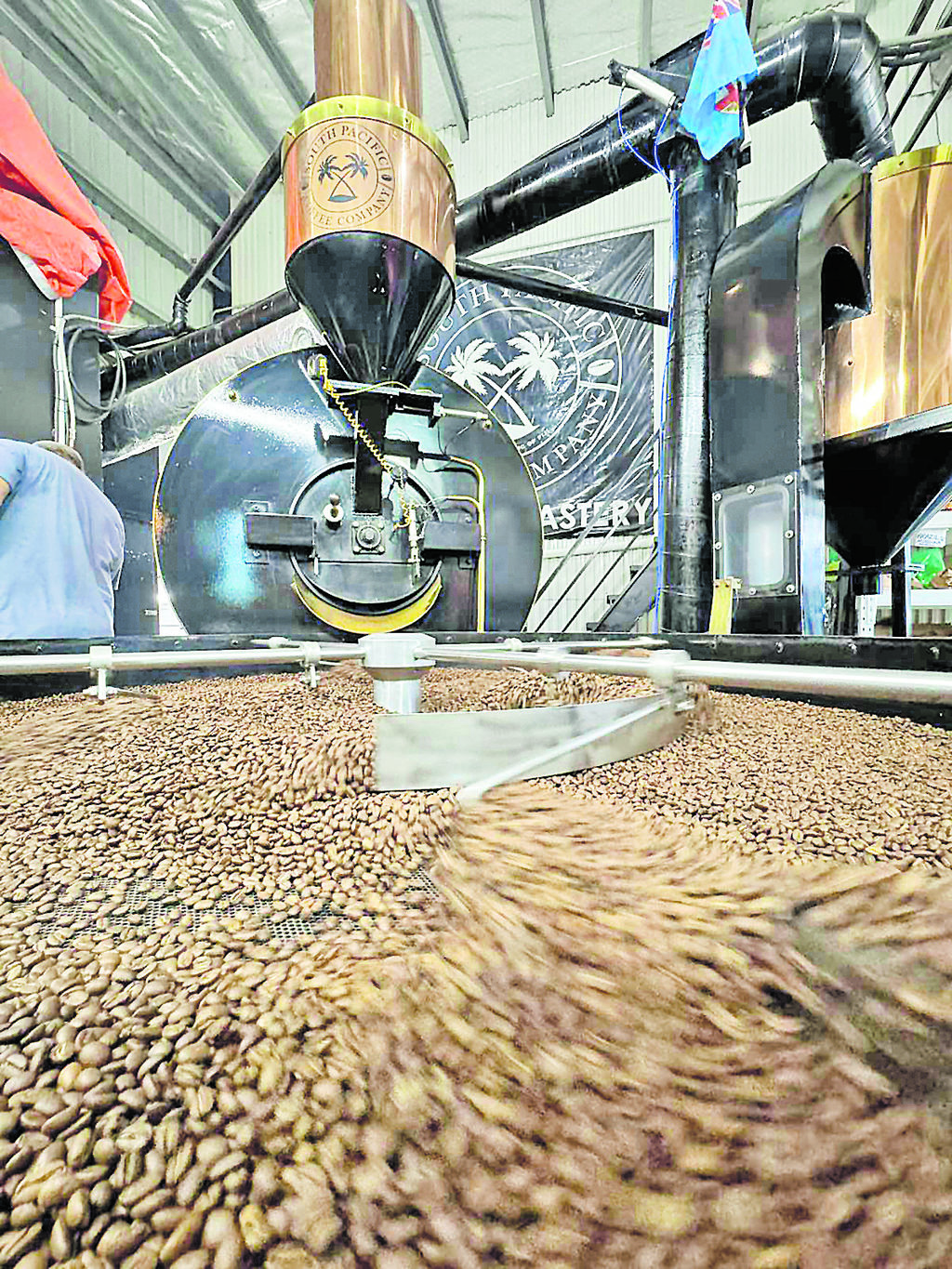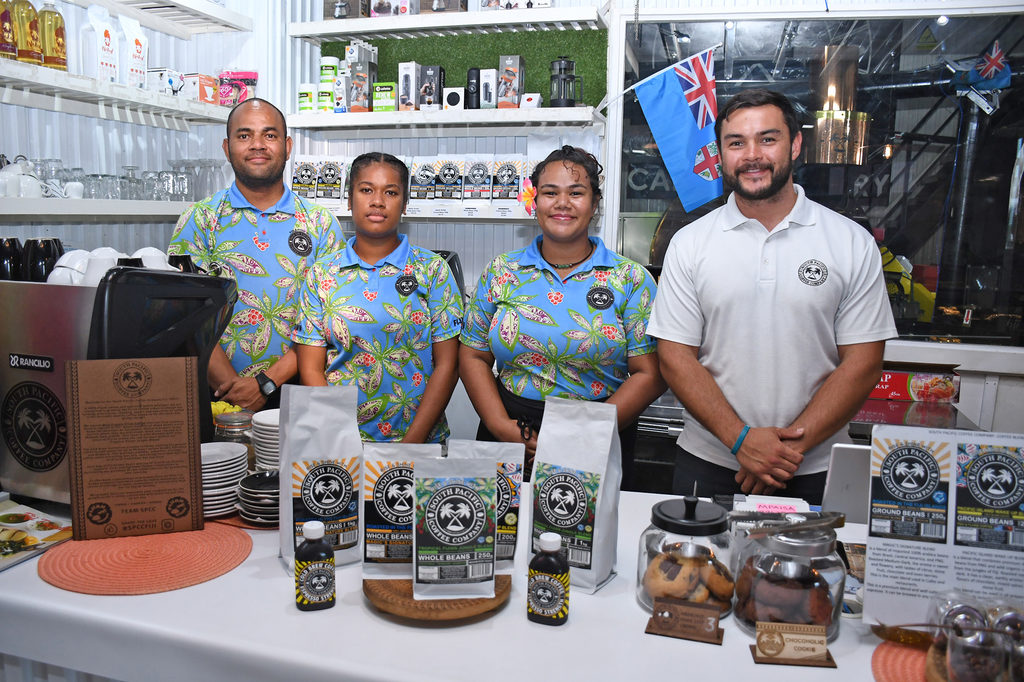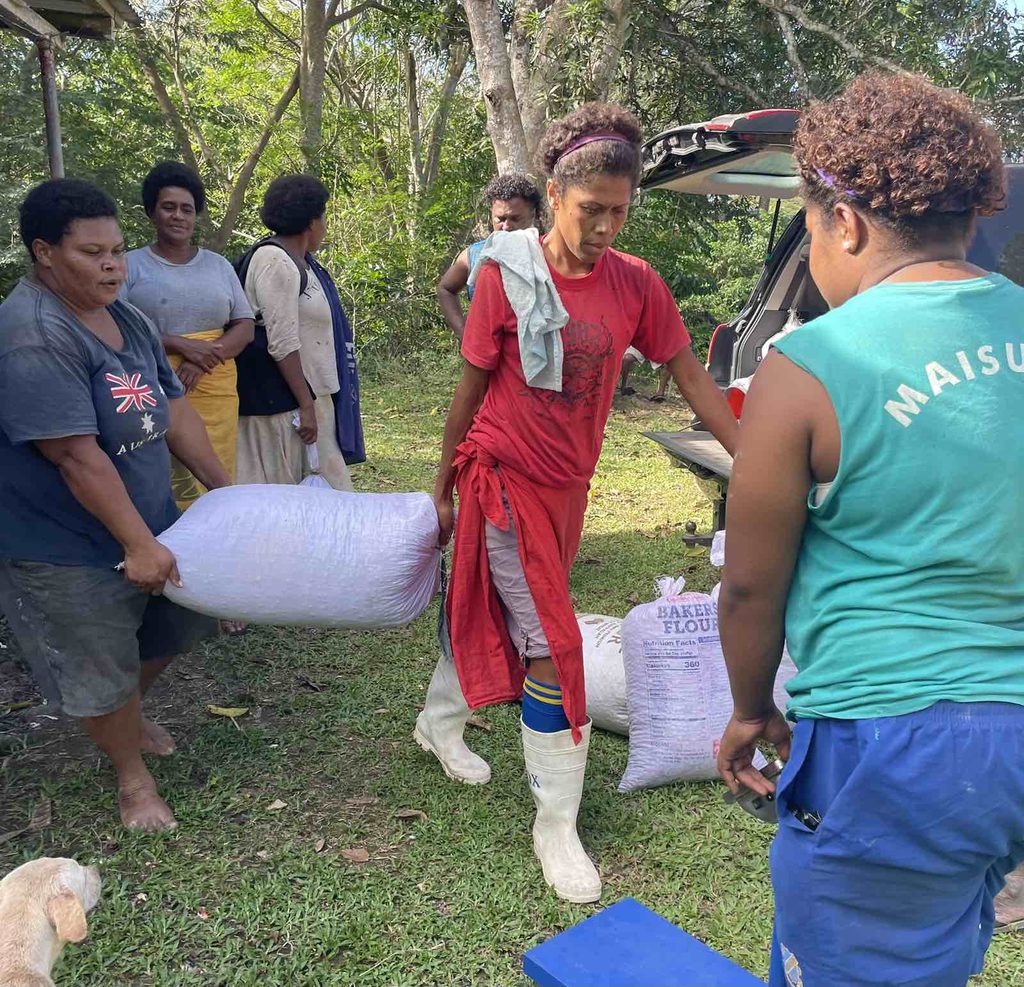Opened during the outset of COVID-19, the South Pacific Coffee Company, a fully Fijian-owned company, has set its focus on developing the Fijian coffee industry.
The company is based at the Nadi Back Rd and sources 100 per cent wild and naturally organic Fijian-grown coffee from diverse regions of Fiji.
In an interview with The Fiji Times, operations manager Maikeli Dennis said their focus was on figuring out how more of the Fiji tourism market could be supplied with local coffee.
“We’ve been based in Nadi since opening in 2020,” he said.
“Our focus has really been on developing Fiji’s coffee industry in terms of looking at working with more communities that have access to locally-grown coffee.
“Motivating more local farmers to look into coffee as an additional crop that can be added to something they’re growing. Working directly with these farmers to source, process and then run the coffee through our manufacturing processing, which is essentially pulping, drying and roasting and then packaging for both the local and the tourist markets.
“And there’s obviously the export interest, but our focus has really been on figuring out how more of the Fiji tourism market can be supplied with local coffee.”
Fiji’s coffee culture
Mr Dennis said between 95 and 98 per cent of hotel and tourism properties around Fiji were using imported coffee.
“Like kava or sugar, there is a lot more emphasis on exporting, but not enough emphasis on how we can start to supply more in the domestic market.
“Our main focus in terms of the coffee industry as a whole is figuring out how Fiji’s coffee culture can be brought up in altitude, whether through local supplies, through local cafes or training.”
Mr Dennis said over the last two to three years, the company has partnered with the Fiji Hotel and Tourism Association (FHTA) for events like HOTEC and for training purposes.
Supplying the local market
“We’ve started to integrate into USP’s hospitality programs in terms of educating more of the next generation of hospitality and service professionals on coffee, in terms of coffee in the value chain and coffee, not just as beverage, but understanding what the value of coffee really could do within Fiji’s Agriculture and Hospitality sector.
“For the last few months, we have been looking at how we can incorporate more local coffee into other domestic partners for different coffee-related products, but also figuring out what we could do in terms of working with the Ministry of Agriculture to help boost local incentives for farmers to look at coffee as a viable product for growing and processing.”
He said coffee has become of high global trading value.
“Over the last 15 to 20 years, we (Fiji) have had everything from sugar to kava, root crops, now turmeric and ginger are big commodities farmers and exporters are focusing on.
“But coffee right now is at its highest ever global trading value which in the last 100 years has continued to rise through COVID-19. Fiji has nothing on that market.
“Instead, we are importing more expensive coffee, paying higher duties and landing costs, and spreading that into our local consumer base here. Whereas if we could focus on developing the industry and developing the processing and manufacturing, we could supply the local tourism and consumer market while supporting local farmers in the process.
Working with rural women farmers
Mr Dennis said the company also developed a working relationship with women farmers in the country’s remote highlands.
“Working with farmers in Navosa, Keiyasi, Bukuya, we’ve met with communities in Nausori Highlands and in Ra Province, on the northeastern side of Ra.
“We have agreements in place with villages in the Sabeto Valley to access wild coffee that’s growing on the Sleeping Giant Mountain range and further into Abaca within the Koroyanitu National Park.
“We’re trying to work with what’s already growing to make the most of that because that already has value.
“As more farmers who have access to wild coffee start to bring that to the market, there is a lot more income for their households, and so now there are more communities that are starting to see more value in coffee, and we can all benefit from it.
“We try to teach in workshops with the harvesting and growing practices that coffee is a 30-to-50-year crop, and that it’s a generational crop.
“Farmers can develop coffee farms that will provide benefits for decades. That is something that their children, grandchildren and various family members can have access to and benefit from.”
Mr Dennis noted that in the last 15 years, more cafes and restaurants have incorporated coffee into their offerings, largely driven by the tourism market and expats.
“They are spending thousands to be here in Fiji and first thing in the morning is we can ensure that (our coffee) is a Fijian grown product which has a developing element of the industry, from a growing side, processing side and from the hospitality and service side.”
South Pacific Coffee Company sources 100 per cent wild and naturally organic Fijian-grown coffee from diverse regions of Fiji. Picture:SUPPLIED

South Pacific Coffee Company takes pride in its roasting process ensuring that every bean is treated with care to bring out its best qualities. Picture: SUPPLIED

South Pacific Coffee Company operations manager Maikeli Dennis (right) with some of his staff at their outlet along the Nadi Back Rd. Picture: REINAL CHAND



